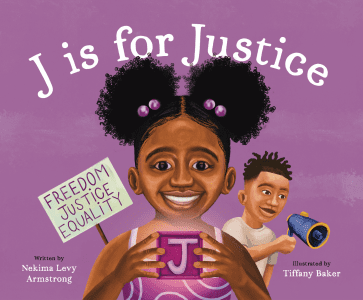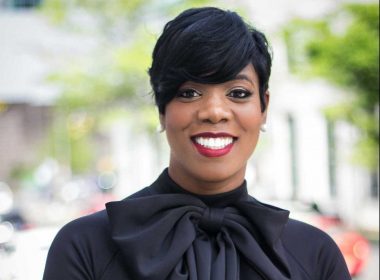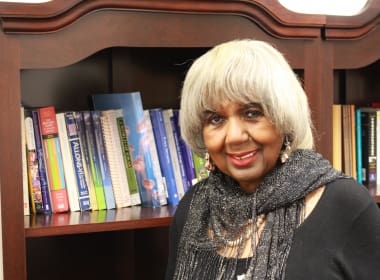
Lester L. Barclay, Esq. is the senior partner of The Barclay Law Group, P.C., a highly competitive and full-service law firm. A member of the Cook County Bar Association and 30-year veteran, attorney Barclay is a native Chicagoan who champions families and businesses and has a penchant for family law.
Here, Barclay discusses his new book, The African-American Guide to Divorce & Drama: Breaking Up Without Breaking Down, “the first-ever comprehensive book on divorce tailored specifically for the Black community which skillfully shepherds readers through the often painful process of separation and divorce, while seeking to minimize the ‘drama’ and trauma for them and their children” and focuses primarily on “divorce and nonmarital separation, alongside custody, visitation, child support, financial disputes, and related issues in the context of African American cultural and social realities.”
Read what else he has to say.
Why did you write this book? Why do Black folks need their own book about divorce with so many other books out there?
I wrote this book to fill a gap in the information available to African Americans about divorce and its aftermath. As in other aspects of their lives, Black folks often face special challenges when it comes to divorce that are culturally based, and I wanted to write a book that spoke to those specific issues. I wrote the book as a guide to help people contemplating or going through a divorce. Divorce is never a pleasant experience. It’s always stressful and painful. However, as an attorney, I’ve seen many people mismanage their divorce, which made the process even more stressful and expensive than it had to be.
The title of your book suggests it’s only for divorced people, but is that true? What about people who are breaking up with a lover they’ve never been married to?
I wrote this book for married people who are contemplating divorce, for people who are currently going through a divorce, for “common-law” spouses considering a breakup, and for people who are already divorced but are still dealing with the aftermath. This is not a book for casual lovers having relationship issues, but a resource guide for couples and spouses on how to humanely end their long-term marriage or relationship without destroying themselves or their children.
Why should your book be read before filing for divorce?
It’s hard to unring a bell or unscramble an egg. My book gives people advice they can use before they make mistakes that may be hard for them to correct.
What are the leading causes of divorce?
The most common things couples fight about are money and the disciplining of children. Lack of good communication is also commonly cited as a reason for the breakdown of marriages. However, underlying it all is often myopic selfishness and narcissism—our society has grown increasingly individualistic. We’ve taught our children to demand their “rights,” with very little attention paid to their duties and obligations. The result is that we have a generation of self-centered adults, who don’t understand that healthy relationships are built on reciprocity and inter-dependence.
Why get divorced? What are some of the significant reasons that people get divorced?
There are as many reasons why people get divorced as why they get married. But in my experience, the leading reasons why people get divorces are the one-sided selfishness of one or both spouses, love-ending infidelity, and out-of-control anger.
Your book advises Blacks to hire attorneys who are culturally sensitive. How would they know which attorneys are culturally sensitive?
Ideally, the best way to find a culturally sensitive attorney is by asking friends and acquaintances for a referral. But, this isn’t always possible. Sometimes, you have to rely on the internet and review their website. It helps to know what you’re looking for. You might try searching for African American attorneys or contact a Black lawyers association. But first, decide if you want a male or female attorney. Once you’ve found at least three lawyers who interest you, look up their online profiles and/or call them for a preliminary chat. Your divorce attorney is a very intimate partner.
For those contemplating divorce what are some of the things people often overlook that they should be mindful of?
I think people don’t consider the emotional “cost” of divorce on themselves, their children, friends, families, etc., or how dramatically it changes their lives. Divorce litigants are usually so angry at each other that they’re completely consumed by the drama of the divorce proceedings. But getting unmarried is a tedious process, and when it’s over, the lives of both parties are radically changed, sometimes drastically, even traumatically. It’s something people contemplating divorce should seriously consider.
For those going through a divorce, what are some of the biggest mistakes people usually make?
My book addresses that at length, but two of the biggest mistakes people often make is filing for divorce too soon and filing for divorce too late. Every couple has problems and goes through rough patches from time to time. Maybe they’ve stopped communicating or being intimate. Maybe one or both spouses are feeling neglected or has had an affair, so the marital trust is broken. But despite all this, the love is still there. Instead of seeking counseling to work on their marriage the couple decides to seek a divorce. That’s filing for divorce too soon.
The opposite of this is when the marriage has broken down completely. There’s no communication, no love, no trust, nothing left between the couple except the kids and a shared address. Still, they hang on, living in anger and misery. Or, maybe there is a long-term situation of domestic violence that makes the home both volatile and dangerous. Yet, the woman stays until her circumstances are desperate and leaving is her only option when she finally goes to see an attorney. That’s filing for divorce too late.
You talk about counseling/therapy a lot in your book. How often do people going through a divorce get counseling, and is it usually helpful?
A very small percentage of African American couples in troubled marriage go to counseling, even though it can be enormously helpful for couples who genuinely want to work out their problems.
Why are so many Black people reluctant to get counseling?
For many in the Black community, going to counseling carries the stigma of being mentally ill. They’re afraid if people find out they’re going to counseling they’ll be labeled “crazy.”
Once the legal part of divorce is over, what are some of the biggest challenges people have in starting their new life as a divorced person?
First, they are legally un-coupled from their former spouse and either single and “free” or single with children. They have to get accustomed to navigating life with this new identity. Secondly, their standard of living may change dramatically, especially for women. Those who may be used to a once upscale lifestyle afforded by two incomes may suddenly find themselves barely making ends meet on one salary. And third, they may find their social lives nonexistent. Ours is a “couples” society, and divorcees may find themselves alone on the sidelines as their married friends stop inviting them to parties and other social functions now that they no longer have a partner.
How do custody/visitation fights affect the children?
Anger is corrosive, so naturally, fighting about and around the children is bound to have a negative effect on them. Children, by nature, love their parents, and even though they may know that mom and dad are mad at each other, they don’t have the capacity to understand all the complex underlying issues. When divorced spouses fight about custody/visitation, the kids usually end up being put in the middle, getting the backlash of both parents’ anger. Often, the kids even end up blaming themselves for their parents’ split even though they had nothing to do with it.
Do feuding parents usually realize how harmful their fighting is to their children? When told how harmful it is, do most of them change their behavior?
Feuding parents are usually angry and often engage heavily in the “blame game,” where each tries to make the other look worse in the eyes of the kids. Yet the irony is, most of these people genuinely love their children and think they’re doing what’s best for them, but anger clouds their judgment. That’s why in divorce cases the court sometimes has to appoint what’s called a guardian ad litem to represent the children and see that their best interests are protected.
How has the decreased marriage rate effected how people raise children?
More and more, marriage is seen as an unpleasant option. Many couples are now having children intentionally, though they have no intention of getting married. Sometimes they don’t even want to live together. The result is obvious — children in unstable homes.
What type of couples have pre-nuptial agreements?
Usually, at least one of the parties has substantial assets they want protected. Poor folks don’t get pre-nuptials. It’s also possible to get a post-nuptial—an agreement after you get married. These can serve to limit your losses in the event of a divorce. On the flip side, if you feel that you need to protect yourself from your spouse, then do you really trust this person?
What can people do to prepare themselves for marriage, and minimize the likelihood of divorce?
Premarital counseling is a great idea. But, do the premarital counseling before you set a wedding date, otherwise, you’ll feel pressured to go through with the marriage even if counseling reveals problems. Post-martial counseling is also not a bad idea since the early stage of marriage can present a unique challenge. Seek the advice of happily married couples. Their perspective is invaluable. Base your expectations on what you learn from such couples, not the romantic fairy tales you see in the movies.
















